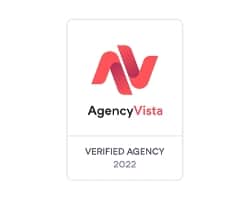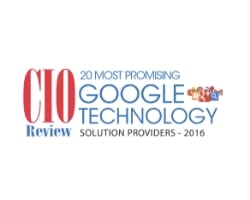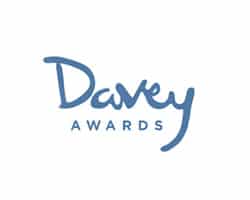Decision-makers juggle endless options, which means standing out requires more than just a strong product—it demands experiences tailored to their unique needs. According to recent research, 82% of B2B buyers now expect personalized experiences from vendors, up from previous years as digital interactions dominate (Forrester, 2024). This shift is fueled by advancements in AI, which allow marketers to move beyond one-size-fits-all campaigns to hyper-targeted strategies that resonate on a personal level. The ultimate takeaway is this: AI-driven personalization is reshaping how B2B brands engage, convert, and retain customers in 2025.
At its core, AI enables scalable, data-informed customization that anticipates buyer behaviors and delivers relevant content at the right moment. This blog explores why AI personalization is essential for B2B success, key tools and applications, implementation strategies, real-world case studies, and potential challenges. By the end, you’ll have actionable insights to elevate your marketing efforts. For expert guidance on integrating these strategies into your brand, check out our Brand Strategy Services.
Why AI-Driven Personalization Matters in B2B
B2B buyers are no longer satisfied with generic outreach. Today’s decision-makers, from C-suite executives to procurement specialists, expect vendors to demonstrate a deep understanding of their industry challenges and goals. A 2025 Gartner report highlights that 75% of B2B buyers prefer a sales experience that doesn’t involve a sales rep, which means they’re relying more on digital content, personalized recommendations, and self-serve tools to evaluate vendors. This shift makes AI-driven personalization not just useful, but essential.
Additionally, AI personalization makes a substantial difference in business outcomes. One case study shows an educational technology company doubling email click-through rates after shifting to AI-tailored campaigns for school district leads. The preference for customization is unmistakable: 70% of B2B decision-makers actively seek personalized messaging, reinforcing just how critical AI-powered targeting has become.
However, this power comes with ethical considerations, such as ensuring data privacy and avoiding over-automation that could erode the human element in B2B relationships. When done right, AI personalization builds trust and positions your brand as a proactive partner.
Key Tools and Applications for B2B Personalization
To harness AI effectively, B2B marketers can tap into a range of tools designed for predictive insights, dynamic delivery, and seamless interactions. Here’s a breakdown:
- Predictive Analytics: AI algorithms sift through historical data to forecast buyer actions, such as purchase likelihood or content preferences. Tools like Salesforce Einstein excel here, helping teams prioritize high-potential leads. For example, a manufacturing firm might use it to identify clients nearing equipment upgrades based on usage patterns.
- Dynamic Content Delivery: This involves real-time adaptation of emails, ads, or website elements based on user data. Platforms like HubSpot’s Sales Hub allow for content that changes according to the visitor’s industry or role, such as swapping out case studies for IT versus finance audiences.
- Chatbots and Conversational AI: Advanced chatbots, powered by tools like Warmly.ai, provide 24/7 personalized support, answering queries tailored to the user’s context. In logistics, this could mean guiding prospects through customized RFP processes.
- CRM Integrations: AI-enhanced CRMs, such as Adobe’s Marketo Engage, automate audience segmentation and campaign personalization, ensuring every touchpoint aligns with buyer journeys.
These applications not only boost efficiency but also enhance relevance, driving deeper engagement.
Strategies to Implement AI Personalization Effectively
Implementing AI personalization requires a thoughtful approach to maximize benefits while mitigating risks. Here are five key strategies:
1. Start with Clean Data: AI thrives on quality inputs, so begin with a thorough data audit to ensure accuracy and compliance with regulations like GDPR. This foundation prevents biased outputs and supports precise targeting.
2. Balance Automation with Human Touch: Use AI for efficiency, but always incorporate human oversight to refine content for nuance and brand alignment. For high-value accounts, marketers can tweak AI-drafted emails to add a personal flair.
3. Test and Iterate: Launch A/B tests on personalized elements, such as subject lines or recommendations. Analyze results to refine algorithms continually.
4. Align with Industry-Specific Needs: Customize AI strategies for B2B niches—for SaaS, focus on tech-savvy buyers; for healthcare, emphasize compliance. This ensures personalization addresses unique pain points.
5. Ensure Transparency: Adopt content provenance standards like C2PA to verify AI-generated elements and maintain trust. Internally track origins with metadata tools, without over-emphasizing AI to audiences.
For help crafting these strategies, explore our Messaging Strategy Services, where we specialize in audience-centric communications.
Case Studies: AI Personalization in Action
Real-world examples illustrate AI’s impact:
- Case Study 1: AI Contact Enrichment: One approach gaining significant traction is AI-driven contact enrichment, which automatically fills in firmographic and behavioral data to sharpen targeting. Recent research shows that companies implementing AI contact enrichment see an average 25% increase in conversion rates, underscoring how higher-quality data translates directly into stronger outcomes.
- Case Study 2: Predictive AI: Predictive AI is also transforming operational strategy. Accenture reports that organizations implementing predictive AI within their supply chain functions can achieve up to 30% in operational cost savings. This underscores how predictive modeling doesn’t just guide smarter outreach—it drives meaningful efficiency gains across the business.
These cases show that AI personalization delivers tangible ROI when aligned with business goals.
Challenges and How to Overcome Them
Despite its advantages, AI personalization isn’t without hurdles:
- Challenge 1: Data Privacy Concerns: With regulations tightening, mishandling data can lead to fines.
- Solution: Implement transparent policies and communicate commitments clearly to buyers.
- Challenge 2: Over-Reliance on AI: Automation might produce generic content.
- Solution: Enforce human reviews to preserve authenticity.
- Challenge 3: High Initial Costs: Setup can be pricey.
- Solution: Begin with affordable tools like open-source options and scale based on proven ROI.
Partnering with specialists like Millennium Agency can help you navigate these obstacles efficiently and cost-effectively.
Conclusion
Personalization is revolutionizing B2B marketing in 2025, empowering brands to meet heightened buyer expectations, accelerate ROI, and foster lasting relationships. By adopting the tools, strategies, and lessons outlined here, you can position your team ahead of the curve.
Take a moment to assess your current personalization efforts—are they leveraging AI effectively? If not, start experimenting with predictive tools or dynamic content today. Share your experiences in the comments or on LinkedIn—we’d love to hear how AI is transforming your approach.
At Millennium Agency, we’re committed to helping B2B brands thrive with innovative strategies.


























